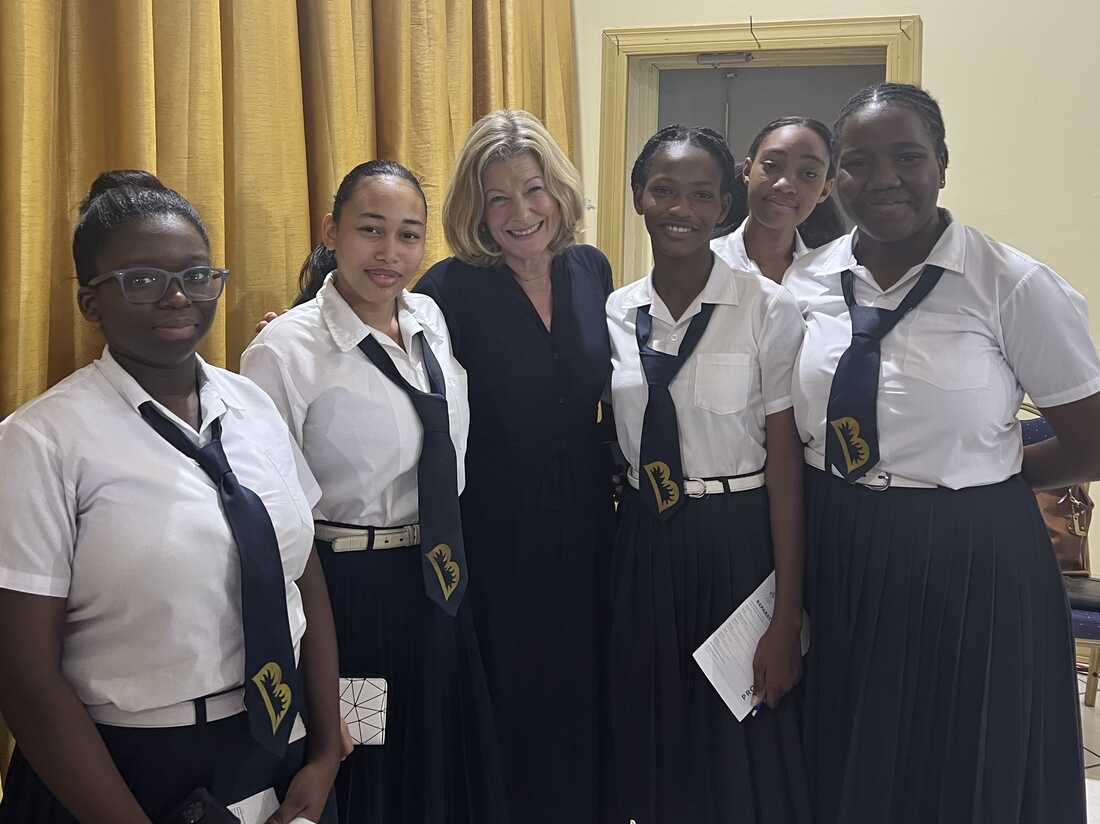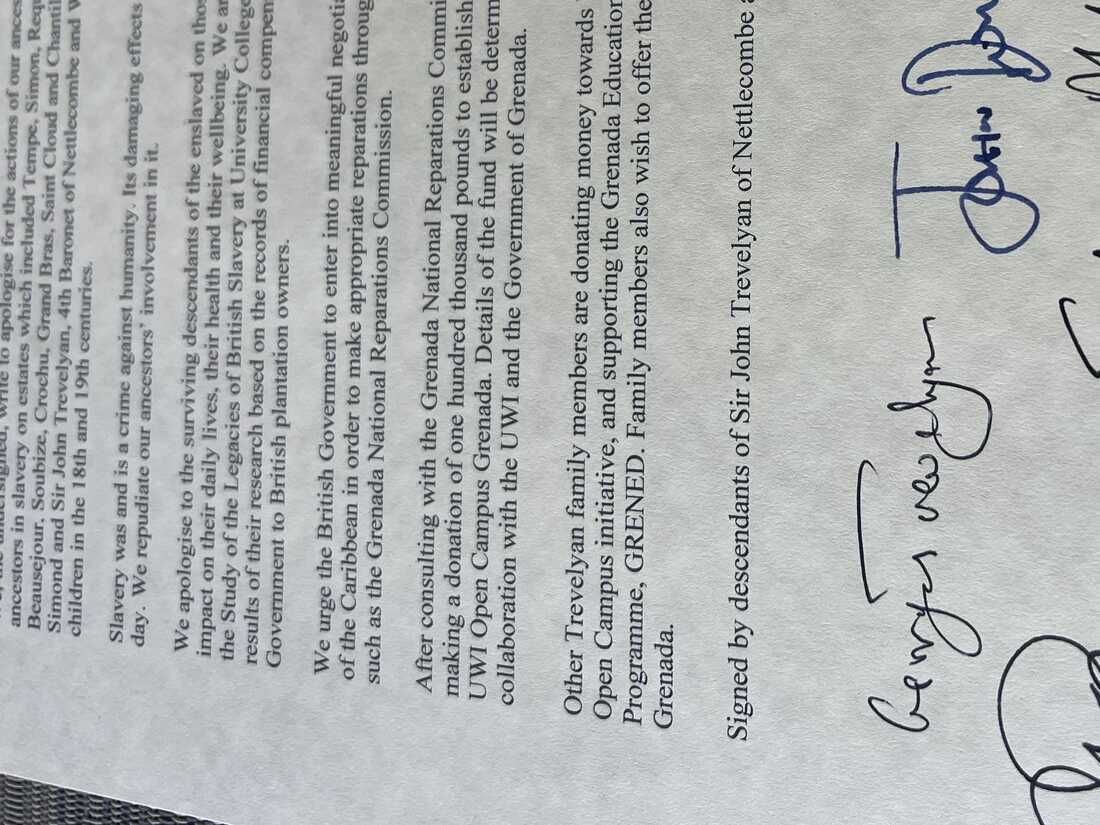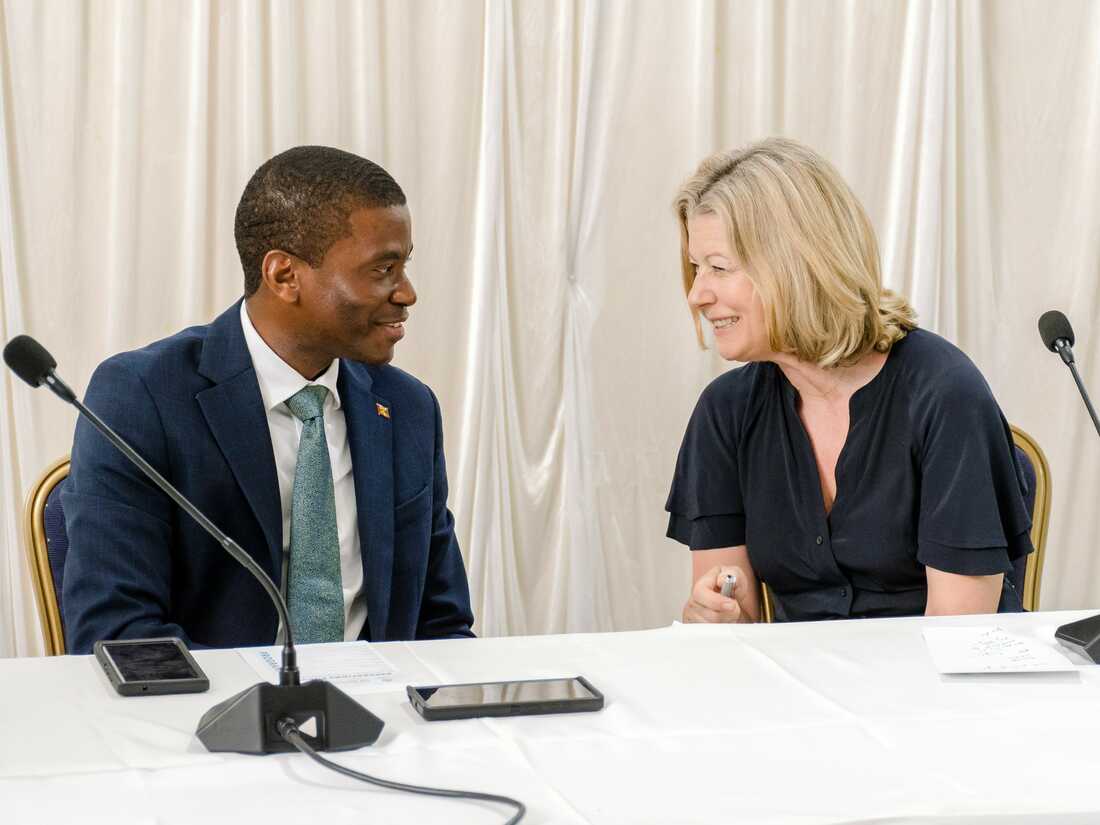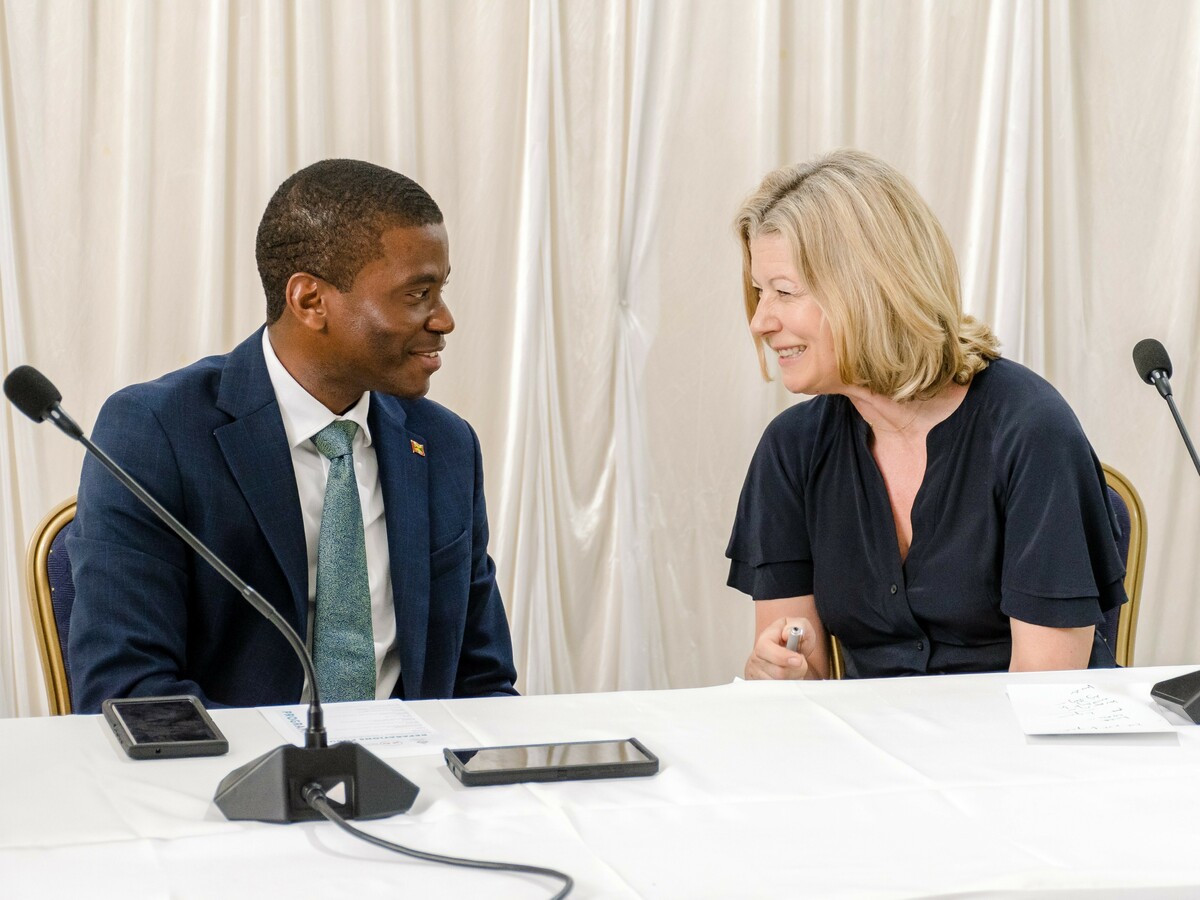
[ad_1]

On Feb, 27, Laura Trevelyan and members of her household traveled to Grenada to concern a proper apology.
courtesy of The University of the West Indies/Laura Trevelyan
cover caption
toggle caption
courtesy of The University of the West Indies/Laura Trevelyan

On Feb, 27, Laura Trevelyan and members of her household traveled to Grenada to concern a proper apology.
courtesy of The University of the West Indies/Laura Trevelyan
When Laura Trevelyan, a longtime anchor and correspondent with the BBC, started reckoning along with her family historical past, she was shocked. “It seems pretty extraordinary that my ancestors enslaved Africans on the Caribbean island of Grenada,” she says, and that even after slavery was abolished by the British parliament, not one of the households of the enslaved obtained reparations. To Trevelyan, its “extraordinary” that nobody paid reparations to the households of greater than a thousand Africans who have been enslaved by her ancestors throughout six plantations on Grenada.
That’s why she felt compelled to assist discovered a brand new reparations effort. She linked up with like David Lascelles, who’s a second cousin of King Charles III and inheritor to an property constructed on earnings from the slave and sugar trades on the island of Barbados.
They co-founded a gaggle known as Heirs of Slavery, which inspires rich British households who profited from previous enslavement to make formal apologies and search reparative justice within the former Caribbean colonies.

Members of the Trevelyan household on the Reparations Forum 2023 in Grenada, signing and presenting a proper apology.
Reynaldo Bernard/Laura Trevelyan
cover caption
toggle caption
Reynaldo Bernard/Laura Trevelyan

Members of the Trevelyan household on the Reparations Forum 2023 in Grenada, signing and presenting a proper apology.
Reynaldo Bernard/Laura Trevelyan
In a interval of greater than 150 years, it’s estimated that the British Empire traded 3.1 million Africans to the Caribbean, North and South America and elsewhere. The slave commerce was abolished by Britain’s parliament in 1807. An act of emancipation was handed in 1833. But Trevelyan says it wasn’t till 2016 when University College London printed an online database of compensation that she found a startling injustice.
Enslavement, abolition and compensation
“It wasn’t the enslaved who received compensation. It was the slave owners who were paid because that was the only way that abolition could get through Britain’s parliament,” Trevelyan tells NPR’s Michel Martin. “What was already a horrific situation was then made even more unfair.”
Trevelyan and Lascelles say they discovered their ancestors earned the equal of thousands and thousands of {dollars} in compensation when slavery was abolished. Trevelyan has donated a portion of her BBC pension to reparations and, in February, she and different members of the family traveled to Grenada to make a proper apology.

Trevelyan household’s letter of apology offered to the prime minister of Grenada
Laura Trevelyan
cover caption
toggle caption
Laura Trevelyan

Trevelyan household’s letter of apology offered to the prime minister of Grenada
Laura Trevelyan
Lascelles, who’s a descendant of George V and a household that constructed Yorkshire’s Harewood House, tells Morning Edition he found a lot of his ancestors’ historical past by means of bins of archival papers associated to companies within the former British West Indies and saved on his household’s property.
“They were in very, very fragile condition. They were in boxes that [were] shoved behind a boiler in the basement of the house. But clearly, once it was out in the open, I’ve made it very clear that it was something we had to address and speak openly about,” Lascelles says.
Lobbying the royal household
Trevelyan says she and different members of rich British households wish to set an instance by means of “coalition building.” And they’re asking King Charles to affix them. Although Lascelles says he and the king do not have a private relationship, he predicts Charles is prone to be open concerning the royal household’s personal discoveries.
“They are researching their own history and they are talking openly about that and even given a timescale and when the kind of fruits of that research will happen,” Lascelles says.
The group can also be calling on the British authorities to interact with CARICOM, the Caribbean governments reparations fee, which asks the previous colonial powers for debt aid and for funding in well being and training.

Grenada Prime Minister Dickon Mitchell and Laura Trevelyan on the Reparations Forum in Feb. 2023 in Grenada
Reynaldo Bernard/University of West Indies
cover caption
toggle caption
Reynaldo Bernard/University of West Indies

Grenada Prime Minister Dickon Mitchell and Laura Trevelyan on the Reparations Forum in Feb. 2023 in Grenada
Reynaldo Bernard/University of West Indies
“These are areas where the Caribbean was left with nothing when emancipation happened and slavery ended,” Trevelyan says.
Trevelyan factors to a “long overdue reckoning” with reparations funds established by entities from the Dutch authorities to the Church of England. Although most people in the U.S. oppose reparations, Trevelyan hopes it will likely be totally different in Europe.
“It’s ugly and it’s difficult,” says Trevelyan. “But it’s important to talk about how the present is defined by the past. And acknowledgement is hopefully the beginning of healing.”
“It’s about responsibility in the end, isn’t it?” Lascelles says.
Jan Johnson and H.J. Mai contributed modifying.
[adinserter block=”4″]
[ad_2]
Source link